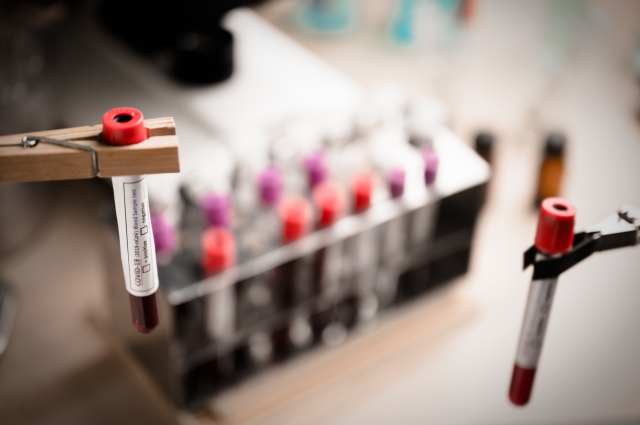Full panel blood tests are comprehensive health assessments that provide a wealth of information about an individual's well-being. They involve analyzing a range of biomarkers that can speak volumes about one's physical condition, including the presence of nutrients, hormones, and potential pathogens. For those looking to take a proactive approach to health management, full panel blood tests are invaluable tools in detecting anomalies before they evolve into more serious conditions. In this article, we will delve deeper into the significance of full panel blood tests and how they can play a pivotal role in personal healthcare.
Understanding Full Panel Blood Tests and Their Importance for Health Monitoring

Full panel blood tests provide a comprehensive view of your health by measuring key markers like cholesterol, blood sugar, and liver and kidney function. They play a vital role in preventative care, helping detect potential health issues early, even those without obvious symptoms. Regular testing also creates a baseline for informed decisions about diet, exercise, and lifestyle, while supporting the management of chronic conditions such as diabetes and heart disease.
In today's era of personalized medicine, these tests allow healthcare providers to tailor treatment plans based on an individual's unique biology. Access has never been easier. Persona Labs sells full panel blood tests, giving people the ability to monitor their health conveniently and take proactive steps toward long-term wellness.
Decoding the Components of a Full Panel Blood Test
Full panel blood tests provide a detailed assessment of various health indicators, often revealing conditions that may otherwise go unnoticed. The complete blood count (CBC) evaluates red and white blood cells, hemoglobin, and other factors to detect anemia or infections. Comprehensive metabolic panels (CMP) assess blood sugar, electrolytes, and organ function. Lipid profiles measure cholesterol levels to gauge heart disease risk, while liver function tests monitor enzymes and proteins linked to liver health.
Thyroid-stimulating hormone (TSH) testing offers insight into metabolic and hormonal balance. For those at risk of specific conditions, screenings may include prostate-specific antigen (PSA) for prostate cancer or rheumatoid factor (RF) for rheumatoid arthritis, alongside tests for vitamins, minerals, and inflammation markers like high-sensitivity C-reactive protein (hs-CRP).
How Full Panel Blood Tests Can Aid in Early Disease Detection
Full panel blood tests offer significant advantages in early disease detection and ongoing health monitoring. Elevated enzyme levels can signal liver damage before symptoms appear, allowing individuals to make timely lifestyle changes or seek treatment. Monitoring glucose levels over time helps identify risk factors for chronic conditions like type 2 diabetes, enabling preventative measures before complications arise.
For patients with existing chronic illnesses, routine testing serves as an early warning system, such as tracking lipid profiles in heart disease or detecting flare-ups in autoimmune disorders. The comprehensive nature of these tests allows healthcare professionals to identify multiple conditions at once, addressing interconnected health issues and supporting informed, holistic care.
The Role of Full Panel Blood Tests in Personalized Healthcare Plans

Full panel blood tests are becoming essential in patient-centered healthcare, enabling clinicians to design personalized care plans based on an individual's unique health profile. These tests help identify patients who may benefit from additional screenings or early interventions, such as monitoring hormone levels for endocrine disorders or tracking tumor markers in those with a family history of cancer.
They also encourage patient engagement and education, allowing individuals to understand their results and participate actively in managing their health. As genetics and genomics become more integrated into routine care, full panel blood tests may include genetic markers, enhancing the ability to prevent and manage heritable diseases with highly customized treatment strategies.
Preparing for a Full Panel Blood Test: Steps You Should Know
Preparing for a full panel blood test involves several key steps to ensure accurate results. Patients are often instructed to fast before the test, as food and drink can affect blood sugar and triglyceride levels. Following specific guidelines from healthcare providers, including medication adjustments and activity restrictions, is essential.
Discussing current medications, supplements, and lifestyle habits like smoking or alcohol use provides necessary context for interpreting results. Emotional preparation can reduce anxiety, with techniques such as meditation, deep-breathing exercises, or support from loved ones. Planning for the post-test period, including reviewing results with a healthcare provider and asking questions about health goals, helps patients understand and act on their findings.
Altogether, full panel blood tests are invaluable resources in contemporary healthcare, offering comprehensive insights that enable better health monitoring, early disease detection, and personalized care. Whether used for routine health checks or targeted investigations, these tests represent a powerful tool in the pursuit of optimal health and well-being.






